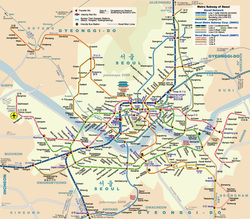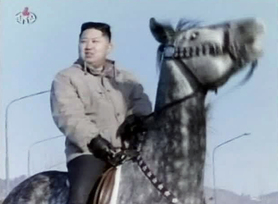In mid-June we will be travelling to the capital city of Seoul, South Korea as part of our school’s global travel program. The purpose of our travel is to participate in a five-week long internship at a hogwon located in the Gangnam district of Seoul. Hogwons in Korea are comparable to tutoring companies in the United States. After their normal school day, almost all students will go to a hogwon that specializes in a subject in which they may need extra help.

During the workday, nine in the morning to five in the evening, we will be designing lessons and textbook material for use in the next semester of classes and observing teachers to determine the techniques they are using well in addition to the ways in which they can improve.
At the end of our trip, we will present the data we have gathered to the board of the company so that they can decide in what direction they would like to move the company.
Below is a sample of what a weekday may look like when we are in Korea:
7:45am - Wake up to get ready for the day.
8:30am - Breakfast on the run at Tom N Tom's Coffee
8:45am - Get on subway at Yeongdeungpo.
9:15am - Arrive at work in Seocho-dong.
9:20am - Morning meeting with Research and Development staff.
10:00am-12pm - Work on textbook materials for Fall 2013 semester.
12pm-1pm - Out for lunch, bibimbap
1pm-3pm - Go to Apgujeong branch to observe classes and gather data.
3pm-5pm - Read relevant research and work on presentation.
5pm-9pm - Eat dinner and explore the city.
7:45am - Wake up to get ready for the day.
8:30am - Breakfast on the run at Tom N Tom's Coffee
8:45am - Get on subway at Yeongdeungpo.
9:15am - Arrive at work in Seocho-dong.
9:20am - Morning meeting with Research and Development staff.
10:00am-12pm - Work on textbook materials for Fall 2013 semester.
12pm-1pm - Out for lunch, bibimbap
1pm-3pm - Go to Apgujeong branch to observe classes and gather data.
3pm-5pm - Read relevant research and work on presentation.
5pm-9pm - Eat dinner and explore the city.

The man of the hour, Kim Jong Un
The media in the United States tends to blow things out of proportion, especially when international issues arise. The recent news about military movement in the Korean Peninsula as well as the “threat” of a nuclear strike on the United States has found its way to the top of American tabloids. Many Americans have begun to express their fear of the situation because of the extraneous nature of stories in newspapers and online.
South Koreans, however, have a different opinion on the subject. Most South Koreans have developed a sort of immunity to the threats from North Korea. The woman who owns the guesthouse in which we will be staying for half of our trip explains that these threats come about once every ten years. With major developments of information access in the 21st century, the issues are now at the forefront of America’s attention instead of common occurrences, as they are seen in the eyes of South Koreans.
Being exposed to American media on a daily basis, whether from the news or online, we have to admit that we were very nervous about the current situation on the Peninsula; however, after speaking with Mr. Strong, our guesthouse contact, and students that I have tutored in the past, our opinion on the matter has changed considerably. Although much tension is present and we cannot just ignore the possibility of danger, we have become much more relaxed about the situation and the capabilities of the global community to respond to the potential threats posed by the North Korean government.
-CJ
 RSS Feed
RSS Feed